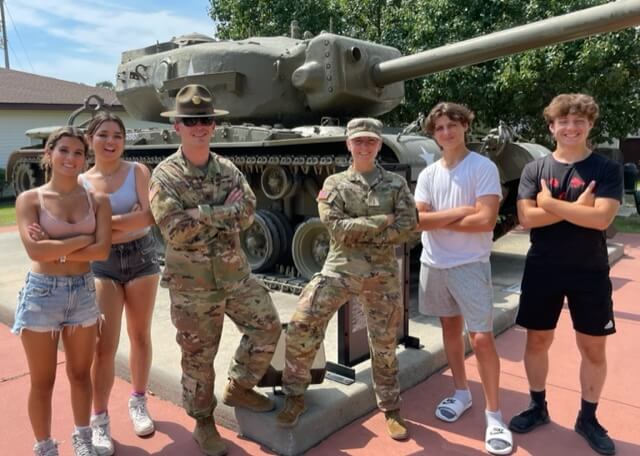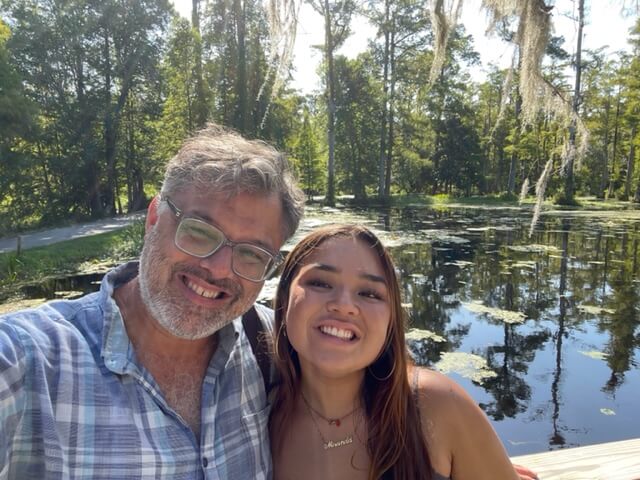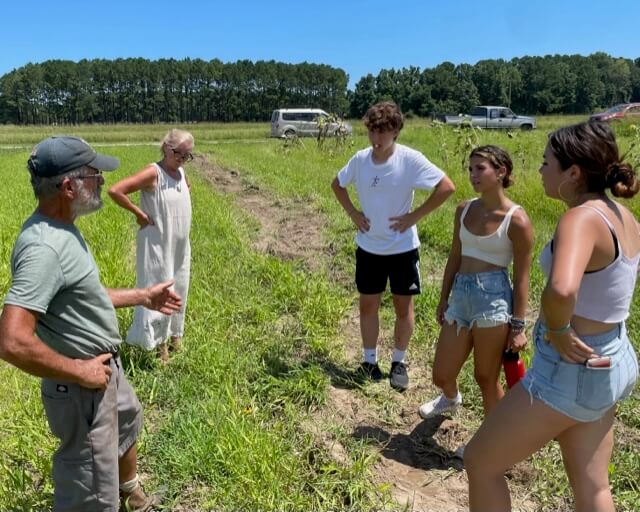American Tributaries was founded by Cobble Hill’s Michael Whidden last year. It includes a Podcast that can be found on Buzzsprout as well as trips within the United States for high school students.
“My daughter Miranda goes to Beacon and during her freshman year there weren’t any school trips because of the pandemic,” Whidden said. “Her sophomore year, the school offered opportunities to travel and they were all to places overseas. It was insightful to see that there wasn’t an emphasis put on encouraging students to learn about the different states and regions within our own country.
“That gave me this idea that was bouncing around in my head for a while and I couldn’t shake it. After a few months, I decided I had to dedicate myself to making it come to fruition. I quit my job in March of 2022 and started learning about educational travel.”
Whidden was working for a wine importer at the time which actually helped prepare him for what he’s doing now.
“To try to do wine sales correctly, you have to try to find an interesting story behind the region and put it in the best light,” Whidden said. “I decided that I wanted to take that skill which I had been developing by selling wines from different esoteric regions and translate it to selling different parts of the country to New Yorkers.
“The transition has been a little scary since one source of household income disappeared when I left my job but it’s also felt more natural than I was expecting. I was used to doing some traveling to visit wineries in Italy and France. I also taught wine classes and my objective wasn’t to get people to memorize a bunch of facts but to spark curiosity. I think that’s the same mindset I have here.”
Whidden organized a pilot trip to South Carolina in August which included stops in Charleston, Columbia, and Greenville.
“Gabriel’s favorite part of the trip was going to Fort Jackson [an Army base,] hands down,” said Juliette Posner, whose son Gabriel was one of the students on the pilot trip. “It’s not something we’re used to here in New York City but he was mesmerized by the experience.”
“I think the way Michael set up the trip down to South Carolina was very interesting too,” said Fabian De Jesus, Gabriel’s father. “They took Amtrak instead of hopping on a plane and it was this 12-hour or so trip where they were able to watch all of the scenery change around them along the way.”
Some of the other highlights of the trip included meeting other high school students who live in South Carolina, visiting McLeod Plantation Historic Site, learning from farmers, going to a stock car race, and much more.
“I think we often hear people say ‘take a week off and travel abroad to open your mind,’” De Jesus said. “Usually people say ‘I want to go to Paris, I want to go London, I want to go to Milan…’ This was South Carolina but it was just as effective, just as powerful, and just as eye-opening as traveling to another country. It was a completely different culture that they were immersed in. I think that it’s powerful to know you can get the same cultural experience that many people talk about from going abroad right here in the United States.”
Miranda Whidden, who went on the pilot trip had some eye-opening experiences, including “Eating with a few older couples who lived in Charleston for over 50 years. I learned so much just from talking to them about their experiences. One of the places we ate in used to be a church and two of them had gotten married there when they were younger. It was just really different from what I’m used to here in New York.
“My friends [from New York] and I were also a little scared that we wouldn’t get along well with the kids from Greenville at first but we took this cooking class with them and they were so much more similar to us than we thought they were. We ended up getting along so well that we went to dinner with them at a Cracker Barrel.”
That seemed to be one of the main themes that everyone mentioned about the trip; even in a very different part of the country with a unique culture, there were also a lot of similarities between the students from New York and the people they met in South Carolina.
“It was great for me seeing these kids from New York City breaking bread with kids from South Carolina, getting to know each other, and even bonding over TikTok,” Michael Whidden said. “As an adult I know we think we’re supposed to rant about how it’s so distracting but that was one of their common frames of reference. Seeing them getting along well was really heartening.”
The pilot trip was a success and there will be a second trip to South Carolina from June 17-25. That trip will be primarily with Poly Prep students but there are still some open seats for other students who are also interested in going. For more information, go to the American Tributaries website (americantributaries.com) and click on ‘Our Trips.’











